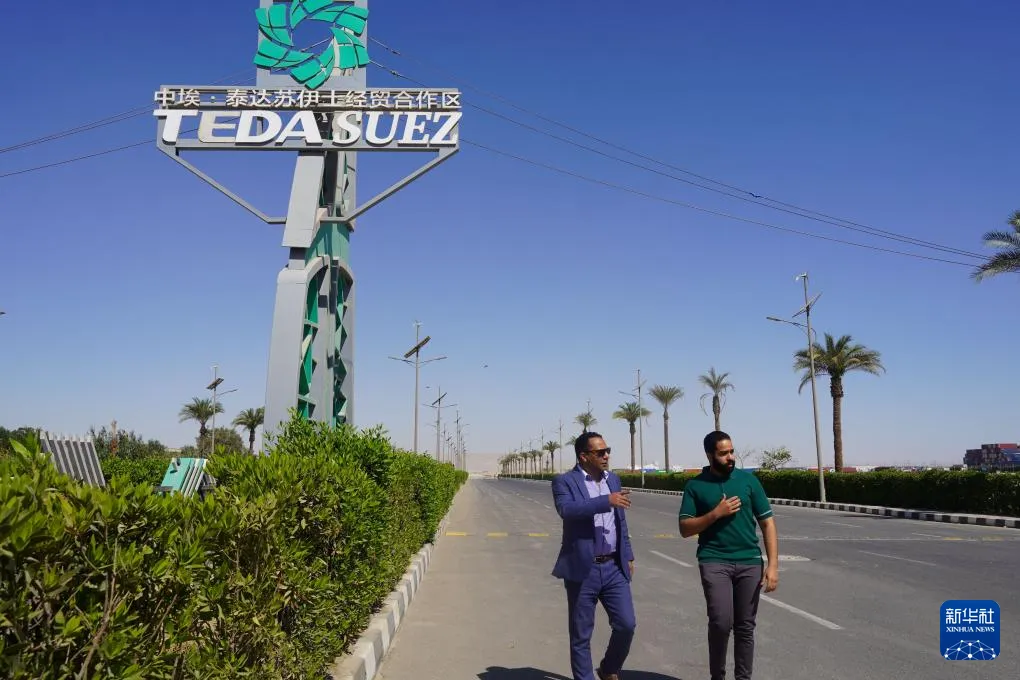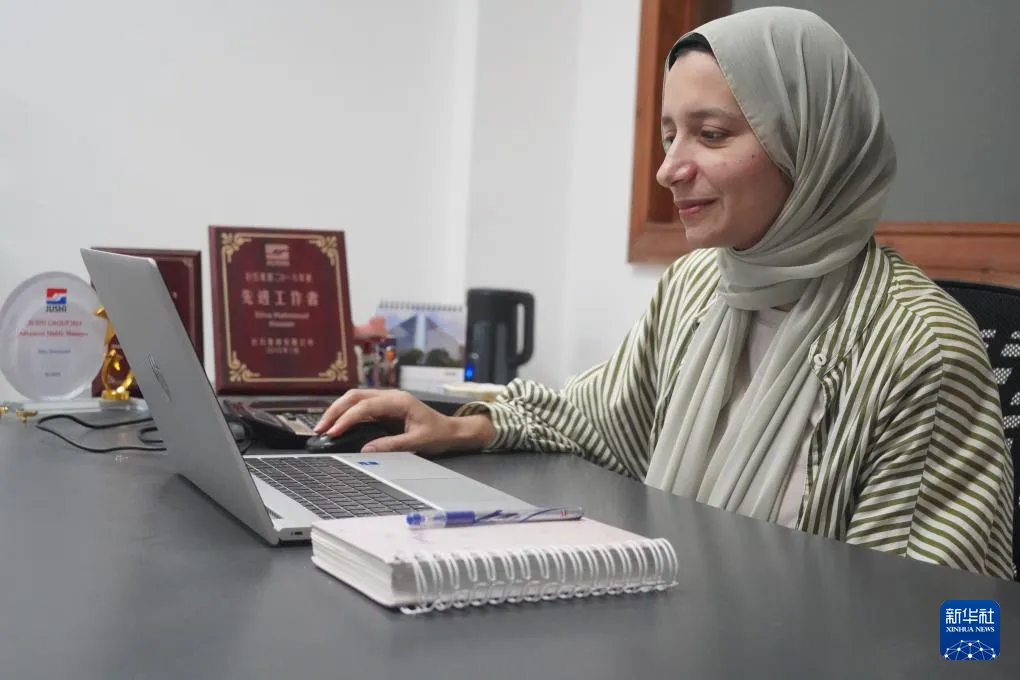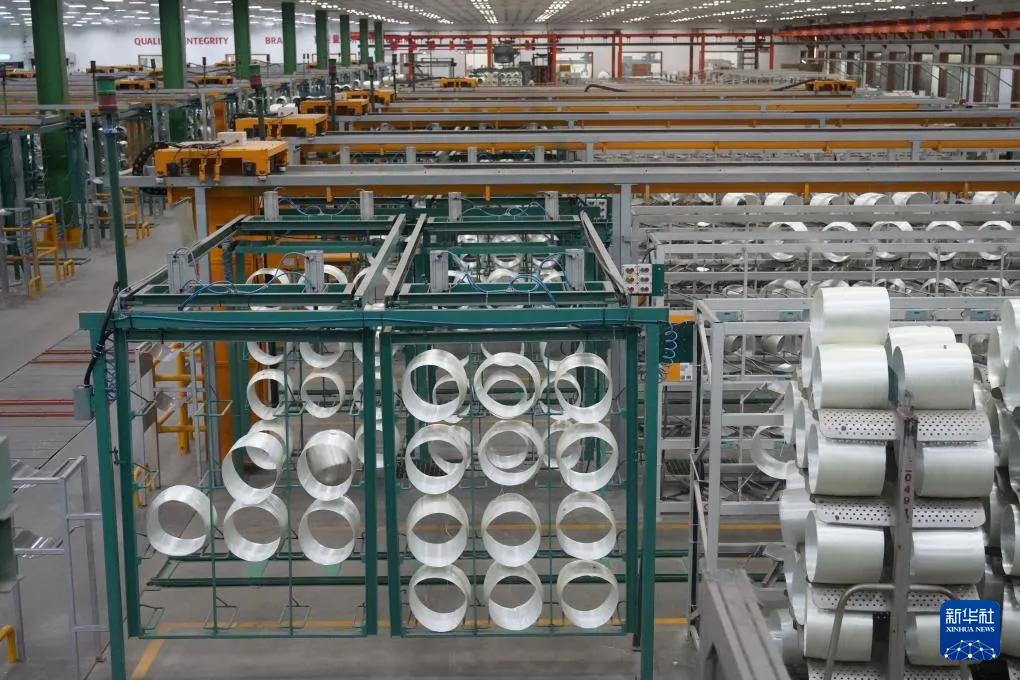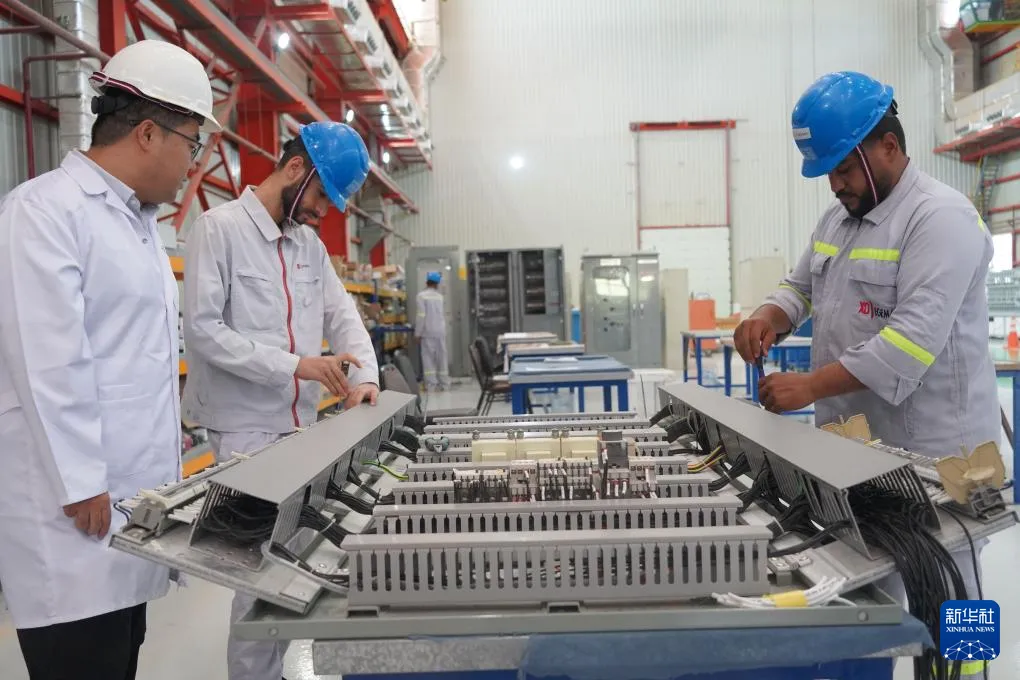
Building Dreams by the Red Sea
Release time:
2025-07-03 09:44
Source | Xinhua News Agency
Reporters | Yao Bing, Zhang Jian, Ma Xiaocheng
More than 120 kilometers east of Cairo, the capital of Egypt, lies the China-Egypt TEDA Suez Economic and Trade Cooperation Zone (TEDA Cooperation Zone) on the shores of the Red Sea. Today, there are about 10,000 Egyptian employees working in this park. They work tirelessly here to realize their dreams, and also contribute to Egypt's development and the China-Egypt joint construction of the "Belt and Road" initiative.
Desert Transformed into a Modern Industrial New City
"When I first arrived at TEDA 16 years ago, it was still a desert. I read the development plan of the TEDA Cooperation Zone and felt it was just an unattainable dream. But today, we have jointly transformed this once-desolate desert into a modern industrial new city. As a witness to the dramatic changes in the TEDA park, I am sincerely proud." Ahmed Radwan, CEO of Egypt TEDA Investment Company, said emotionally to the reporter.

On May 28, in the China-Egypt TEDA Suez Economic and Trade Cooperation Zone located in Suez Governorate, Egypt, Ahmed Radwan (left), CEO of Egypt TEDA Investment Company, and his colleagues check the situation in the park. Xinhua News Agency reporter Yao Bing
Radwan joined the TEDA Cooperation Zone in November 2008, growing from a financial manager to CEO. Speaking of his years at TEDA, he said with emotion: "Initially, I only planned to work here for 5 or 6 years, but I ended up staying for 16 years. Here, I realized my career aspirations, and all this is inseparable from the support of the TEDA team and the selfless help of my Chinese colleagues."
Radwan said that the TEDA Cooperation Zone has now become an important hub for China-Egypt economic and trade cooperation. It not only vividly interprets the fruitful results of the "Belt and Road" initiative, but also promotes Egypt's industrialization process by continuously attracting investment, expanding foreign trade, and improving manufacturing capabilities.
To date, the TEDA Cooperation Zone has attracted 185 companies, attracting approximately US$3 billion in investment, with cumulative sales exceeding US$5.3 billion, tax payments of nearly US$300 million, and directly providing jobs for nearly 10,000 people.
The "Fiberglass Flower" Blooms on the Shores of the Red Sea
In 2013, Dina Mahmoud Hassan, who had just graduated from university, joined the Giant Stone Egypt Glass Fiber Co., Ltd. (Giant Stone Egypt) in the TEDA Cooperation Zone, becoming one of the few female employees of the company.

On May 29, in the China-Egypt TEDA Suez Economic and Trade Cooperation Zone located in Suez Governorate, Egypt, Dina Mahmoud Hassan, deputy manager of the planning and logistics department of Giant Stone Egypt Glass Fiber Co., Ltd., works in her office. Xinhua News Agency reporter Yao Bing
"I started as a production planner and grew into the deputy manager of the planning and logistics department, responsible for production planning and logistics scheduling." Speaking of her growth experience, the 32-year-old admitted that "it was very difficult to compete with male colleagues."
She particularly mentioned that after becoming a mother in 2022, finding a balance between career and family put a lot of pressure on her. "Fortunately, my colleagues gave me great support and understanding, helping me get through this adaptation period smoothly and quickly get back on track."
Recalling the past ten years of working with the company, Dina said with emotion: "From only one production line 13 years ago to four production lines running in parallel today, every step is the crystallization of the team's wisdom."
Since its establishment in the TEDA Cooperation Zone in January 2012, Giant Stone Egypt has created Egypt's fiberglass industry from scratch. It currently has a total design capacity of 360,000 tons per year, making it the largest fiberglass production base in Africa and Egypt the world's fourth-largest fiberglass producer.

This is a photo of fiberglass products taken on May 29 at Giant Stone Egypt Glass Fiber Co., Ltd. in Suez Governorate, Egypt. Xinhua News Agency reporter Yao Bing
Ma Xinyao, deputy general manager of Giant Stone Egypt, introduced that the company has good economic benefits, has accumulated more than US$1.9 billion in export earnings, and created about 2,000 jobs, with more than 98% of the employees being local.
Diligent work has led to Dina's promotion and salary increase, and she has also received many company awards. On her clean desk, two "Advanced Worker" medals and one "Advanced Middle-level Manager" medal are particularly eye-catching, like milestones recording her every step of growth.
"I am very fortunate to have joined Giant Stone Egypt. The generous salary and benefits have changed my family's circumstances and my life." Dina said she hopes her future will develop even better, and she also hopes that the "fiberglass flower" will bloom even more brilliantly.
Providing Stable Power Support for Egypt's Development
Xidian-EGEMAC High-Voltage Electrical Equipment Co., Ltd., a joint venture between China Xidian Group and the Egyptian side, is one of the leading enterprises in the TEDA Cooperation Zone. It mainly focuses on Egypt and provides power transmission and transformation equipment and complete sets of engineering services to the Middle East and African markets.
After putting on a safety helmet, a white coat, and shoe covers, and passing through the air shower dust removal channel, the reporter entered the company's switchgear production workshop. Several experienced technicians were assembling high-voltage switch on-site control cabinets in an orderly and tense manner.

On May 28, in the China-Egypt TEDA Suez Economic and Trade Cooperation Zone located in Suez Governorate, Egypt, employees of Xidian-EGEMAC High-Voltage Electrical Equipment Co., Ltd. work in the switchgear production workshop. Xinhua News Agency reporter Yao Bing
Li Jianfei, general manager of the company, said that in the past 16 years, the company has participated in the general contracting construction of 33 substations in Egypt. These projects have greatly alleviated Egypt's power shortage and provided a continuous source of power for Egypt's development, while also cultivating a large number of local talents.
The company currently has 260 employees, with a localization rate of over 97%. Many Egyptian employees have grown into middle-level cadres or even senior executives. The growth of the company's deputy general manager, Mosad Ibrahim, vividly interprets the successful implementation of the company's "localization of talent" strategy.
"From the company's inception and the start of factory construction to Xidian's undertaking of the construction of Egypt's first 500-kilovolt substation, I have been fortunate enough to participate in and witness this historical process." Ibrahim showed the reporter an old photo from his mobile phone.
In this photo taken in 2010, the young Ibrahim stands in the center of a construction site, surrounded by desert. Today, this place has become a manufacturing base for Xidian Egypt high-voltage power transformers and gas-insulated metal-enclosed switchgear, supplying a large amount of equipment for the construction and renovation of Egypt's national power grid.
In 2009, Ibrahim joined the company as a translator. As the company's business expanded, he successively experienced multiple positions, including bidding and tendering, sales, and project execution. Although each job change brought new pressures and challenges, Ibrahim knew that this reflected the company's expectation of his multifaceted development.
“My Chinese colleagues often reminded me that work shouldn't stop at translation; I should strive to become a multi-skilled person,” Ibrahim said. From meticulously preparing bidding and tendering documents to the standardized execution of project contracts, his Chinese colleagues always provided hands-on guidance.
Today, Ibrahim is responsible for sales and market development, and he is full of expectations for the company's future development. “We need to further expand the company's scale and continuously improve the market share of our equipment in the Gulf region, Africa, and Europe.”
—END—
Previous Page
Previous Page
Related News
2025-11-28








